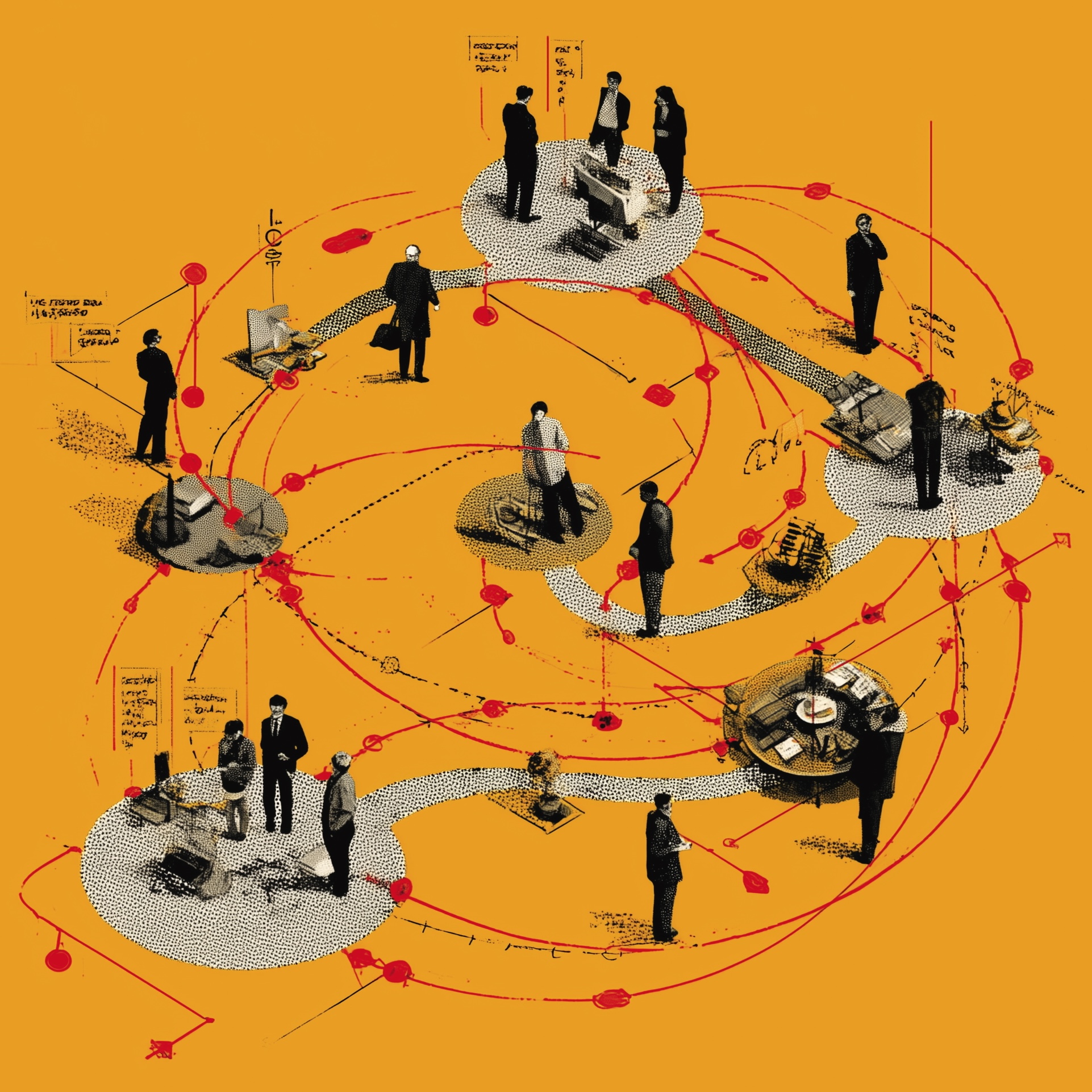How to stay psychologically safe at work
Managers in the NHS are working under unique pressure. To sustain the high performance being demanded of them, managers and their team need to feel psychologically safe, supported and encouraged to learn from each other.

The operating context for health and care is always highly pressured, fast-paced and dynamic. Responding to the Covid-19 pandemic, rolling out the biggest vaccination programme in history and grappling with the structural changes associated with Integrated Care Boards has placed even more pressure on leaders to perform beyond expectations.
This context could be described as ‘Volatile, Uncertain, Complex, and Ambiguous’ (VUCA) – a term coined by the US Army War College and widely used to frame modern thinking about sustainable and healthy high performance.
Highly demanding activity like this can create appropriate operational stretch and challenge for staff, but persistently VUCA environments risk causing psychological harm unless measures to promote psychological safety, resilience and wellbeing are systematically put in place.
What is psychological safety at work?
When working in VUCA environments, anyone’s voice might be mission critical. Psychological safety is about creating the conditions where we all feel safe to take an interpersonal risk by sharing ideas, questions, concerns, mistakes and observations without the fear of ridicule or punishment. In a psychologically safe workplace, we welcome different opinions and perspectives, recognise there’s always something to learn and that we can change course with new information. It’s not ‘fluffy’ or about being nice to everyone: psychological safety enables sustained healthy high performance through informed decision making, innovation and perpetual learning.
Health and care services are a human business—their success depends entirely on the people that deliver them. Happy employees feel confident, supported, curious, and are willing to share knowledge, ideas and opinions, express feelings, try new things, ask for help and to accept responsibility and accountability. People don’t perform at their best if they are scared, secretive, suppress their feelings, pretend to have the answer, or feel too anxious or too comfortable to take responsibility.
The anxiety zone
With poor psychological safety and a high level of accountability, staff work in the ‘anxiety zone’: they are fearful, demotivated and only just surviving. Staff turnover and sickness rates might be high. There might be a growing grievance culture, more problematic incidents and a distinct lack of innovation and creativity. Members of these teams need looking after and more wellbeing support.
The apathy zone
 Rachel Cashman: “Psychologically safe teams perform better: they are more likely to accept accountability, mitigate mistakes and achieve their goals.”
Rachel Cashman: “Psychologically safe teams perform better: they are more likely to accept accountability, mitigate mistakes and achieve their goals.”
If there is low accountability and low psychological safety, teams may be operating in the ‘apathy zone’. People just to go through the motions, undertaking the bare minimum with little or no discretionary effort. These teams need to reconnect with their sense of purpose and motivation.
The comfort zone
Teams with high psychological safety but zero accountability are working in the ‘comfort zone’. When relationships become too cosy, a climate of whingeing without cause may prevail. Teams lack constructive challenge and may need additional training and performance management, and a renewed focus on the organisation’s objectives.
The learning zone
Teams that are accountable and psychologically safe are working in the learning zone. Literature reviews of psychological safety show that leaders who consistently work in the learning zone have better levels of communication, knowledge sharing and engagement. There is more openness to learning—including from failure—more staff commitment to the organisation, more creativity, innovation and initiative. Staff turnover and absenteeism are reduced. Psychologically safe teams perform better: they are more likely to accept accountability, mitigate mistakes and achieve their goals.
How leaders set the tone
Psychological safety is everyone’s responsibility, but leaders and managers set the tone. Psychologically safe leaders have clarity of purpose, consistency of message and ‘frame the work’ – by providing clear parameters that give people freedom to operate and opportunity to speak up and seek help if required.
Managers create psychological safety by:
- appearing accessible without micro-management
- embracing the concept of appreciative enquiry and treating outlying data points as objects of curiosity, rather than something to hide or blame someone for
- raising the organisational cost of silence and lowering the personal cost of speaking up
- acknowledging fallibility and vulnerability—owning it, sharing it and describing what they have learned from it
The three facets of psychologically safe leadership are:
Framing the work: This is context specific and should acknowledge any uncertainties or potential limiting factors. Framing the work creates the conditions for speaking up.
Inviting participation: Ask good questions, focus on what matters, deepen the discussion, explore the evidence and alternative options and offer people space to contribute their experiences and ideas.
Responding productively: Embrace outliers and messengers bearing difficult news, value collective problem solving, practice a just culture.
How managers can protect their own psychological safety
Often managers and leaders in health and care are so wrapped up in the merry-go-round that they have little space to reflect on their own practice or psychological safety. To protect your own psychological safety, start by taking time to reflect on your lived work experience. Ask yourself:
- Am I helping people to feel comfortable sharing the truth? Do I feel comfortable sharing the truth?
- Am I receiving the true picture—are people telling me as it is?
- Do I have all the facts?
- Do I ask enough questions and contribute fully in meetings?
- What is my body language telling me and others about how safe I feel?
- Am I confident enough to own mistakes and ask for help?
- Do I say yes to everything at a cost to my capacity and capability?
- Have I sufficiently framed what I can offer and set appropriate professional expectations?
Recognising your authentic lived work experience is the first step to improving it. The second step is doing something about it, with the support and confidence of trusted colleagues and your professional network.
Based on your reflections, consider which of the zones above you are working in. Your zone might vary within the working day or week, or between different reporting lines and projects. Try to establish what you need to operate in the learning zone:
- Do you have clarity about purpose, autonomy and expectations?
- Are you using techniques that give you space to think and respond rather than reacting in the moment?
- Think about where you feel most supported at work and where you feel most alone. What can be transferred from the supportive culture to the areas of isolation?
- Consider the quality of conversations at meetings as opposed to their frequency. Can you change how meetings are structured or the contributions people offer?
- How do you create and sustain informal support networks, including water-cooler or coffee shop moments?
- Workload pressures always feel insurmountable. Are you clear about what needs to be paused, what work needs to be adapted to meet changing purposes and what needs to be prioritised?
- Good psychological safety is achieved with good dialogue: interactions that build trust and an understanding of each other’s perspective. For example, is there space to have a conversation with colleagues rather than send emails?
The NHS prides itself on compassionate care for patients. To deliver this it needs to be equally proud of compassionate candour and courageous contributions from its staff and leaders. Psychological safety starts with curiosity, empathy and humility. By showing a little more of each in every conversation, sustainable, healthy high-performance becomes that bit more achievable.
- Rachel Cashman is a leadership coach who worked on the NHS Horizons psychologically-safe leadership programme, and founder of the Soircas Consultancy.
Related News
-

NHS job cuts: you’ll never walk alone
As the NHS redundancies in England loom, Rhys McKenzie explains how MiP will back you, and how members supporting each other and acting collectively is the best way to navigate this difficult process.
-

What now? Seven expert takes on the Ten-Year Plan
The government’s Ten-Year Plan for the NHS in England has met with enthusiasm and exasperation in equal measure. We asked seven healthcare experts to give us their considered view on one aspect that interests, excites or annoys them.
-

NHS job cuts: what are your options?
When politicians start reforming the NHS, there is only one certainty: some people will lose their jobs. But what options might be on the table and how does redundancy work? Corrado Valle explains.